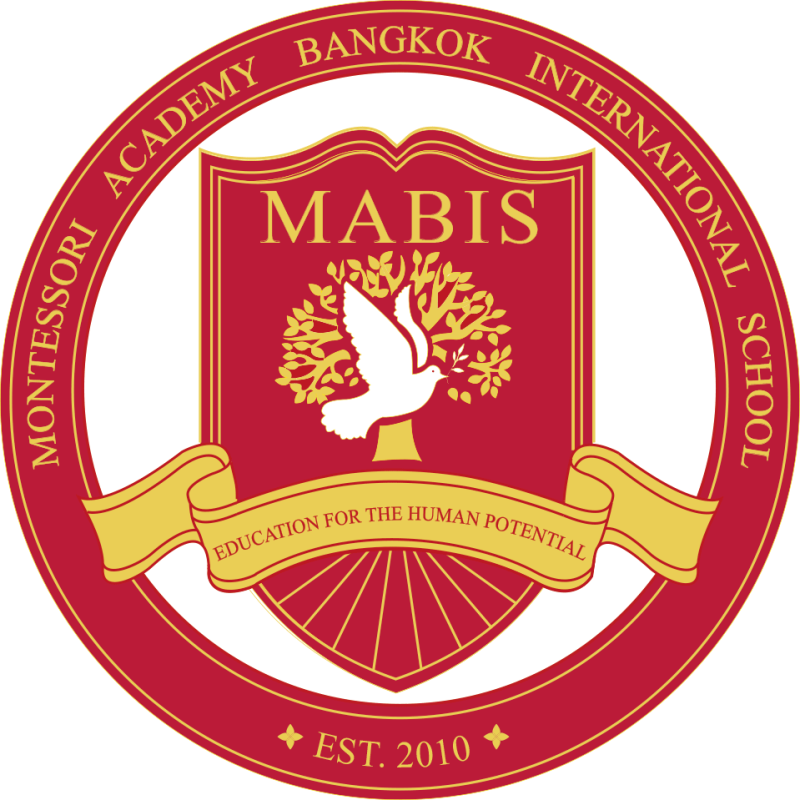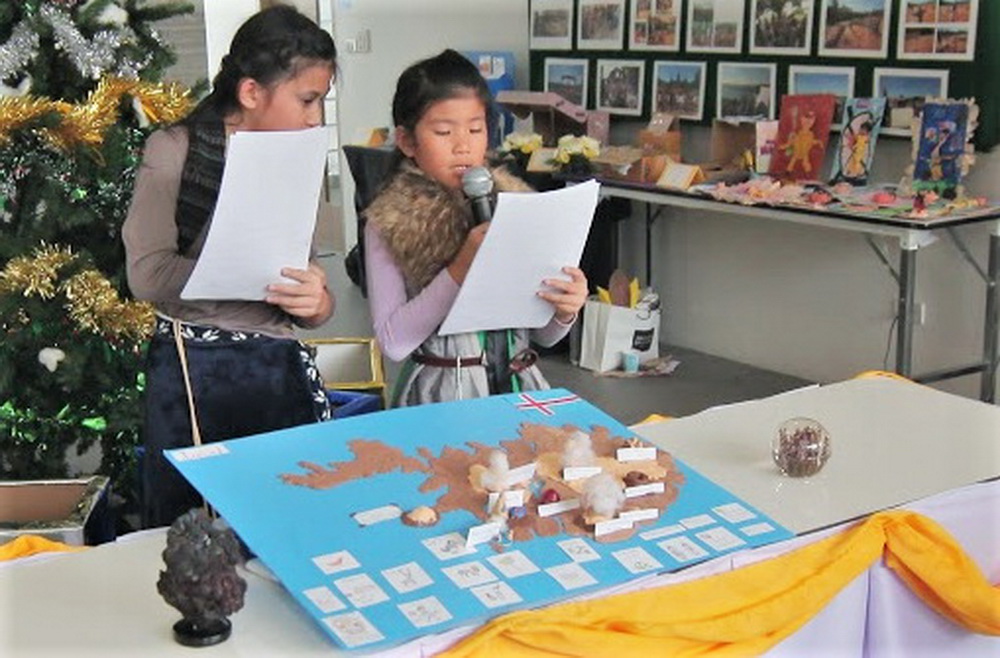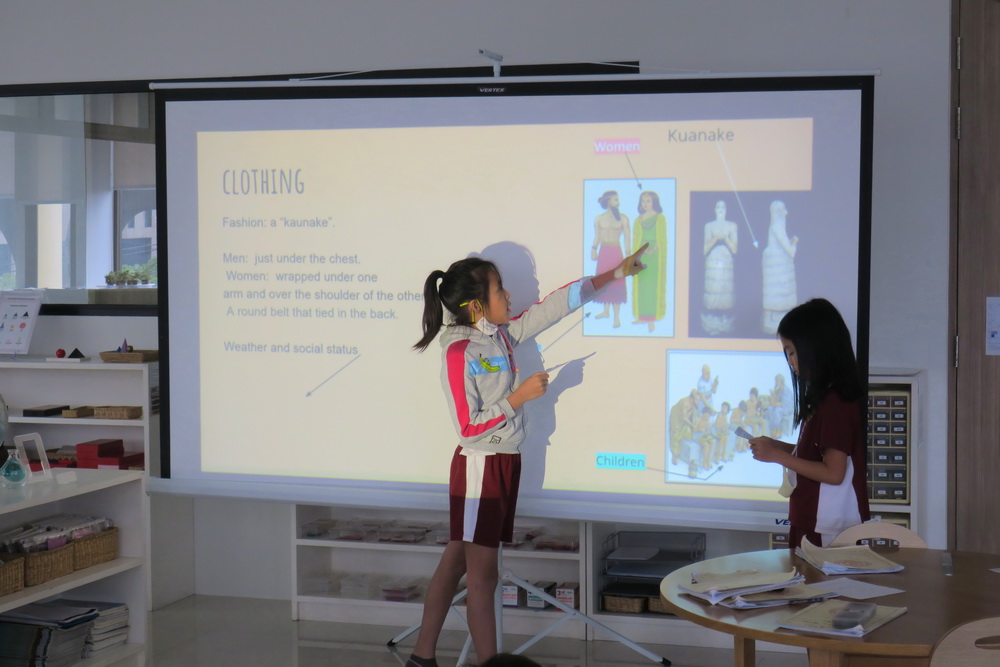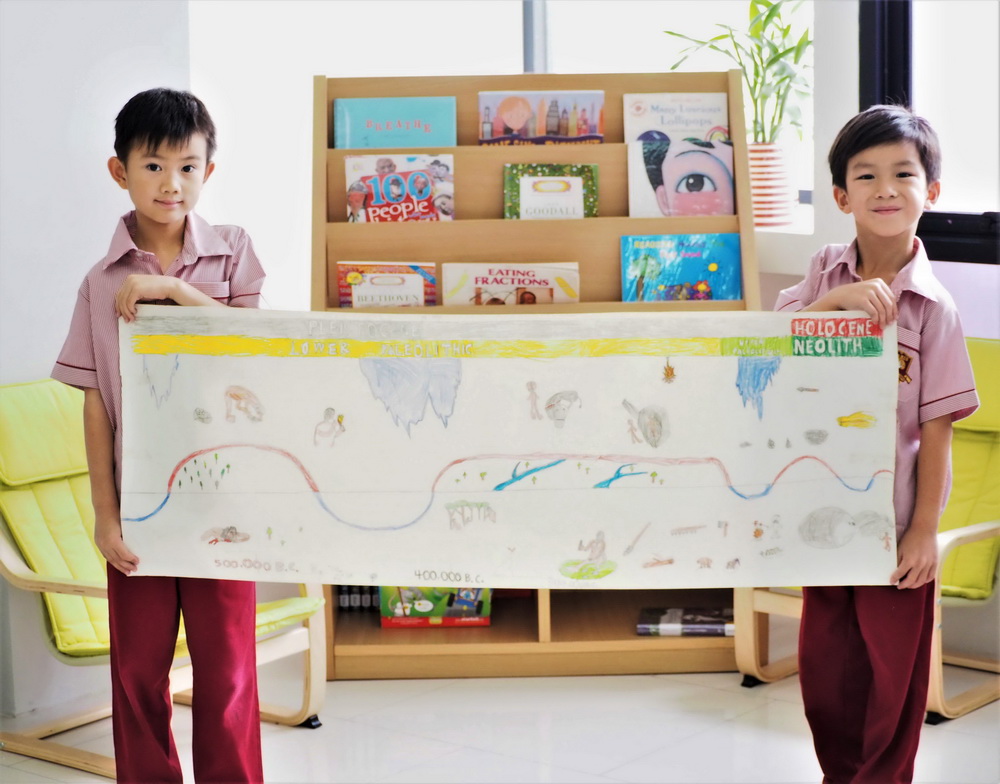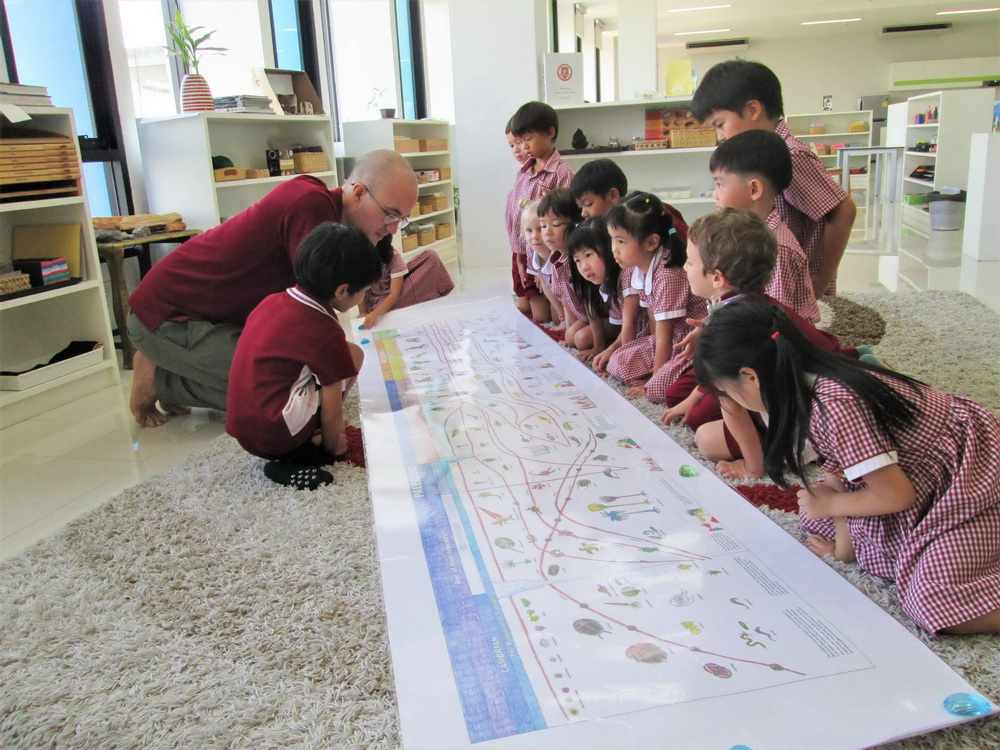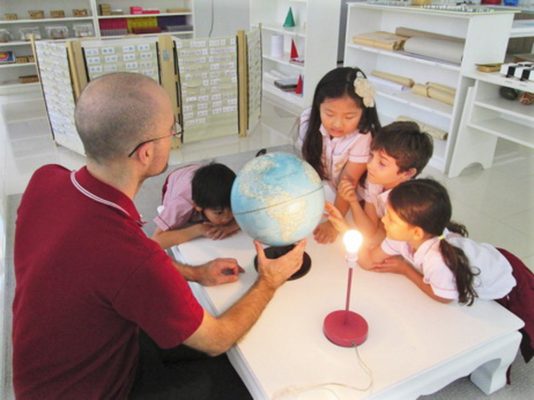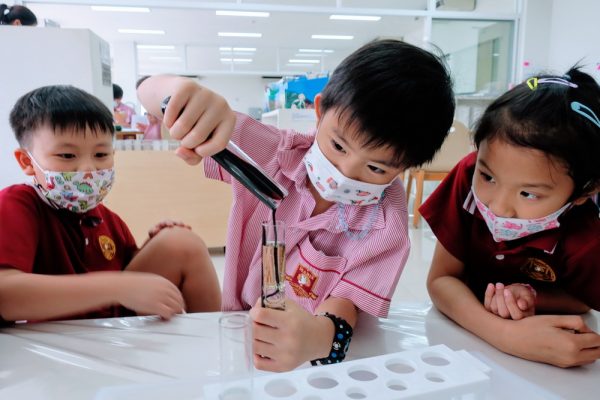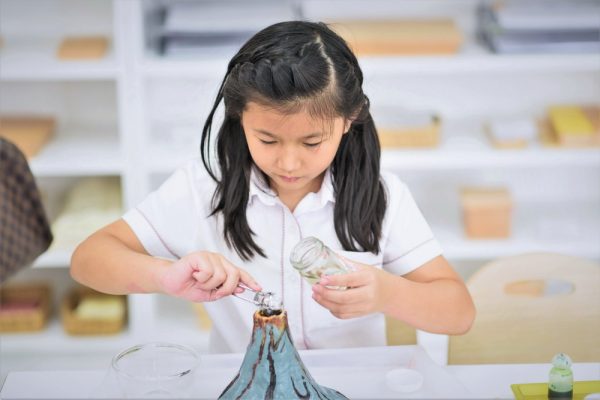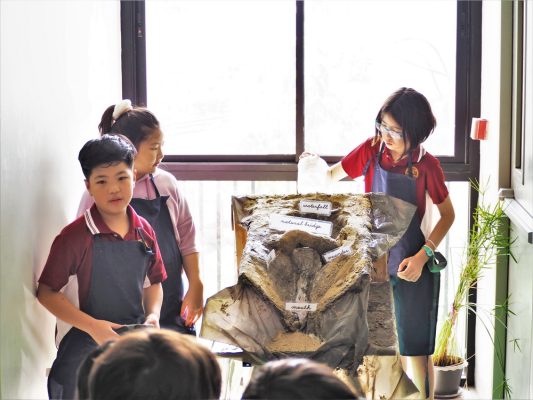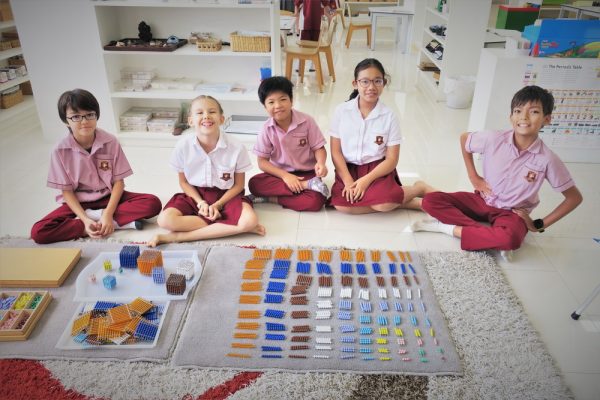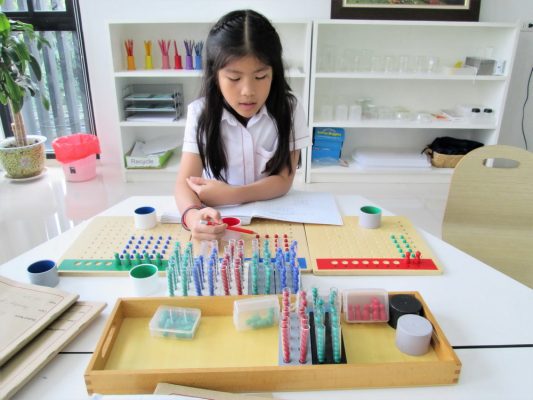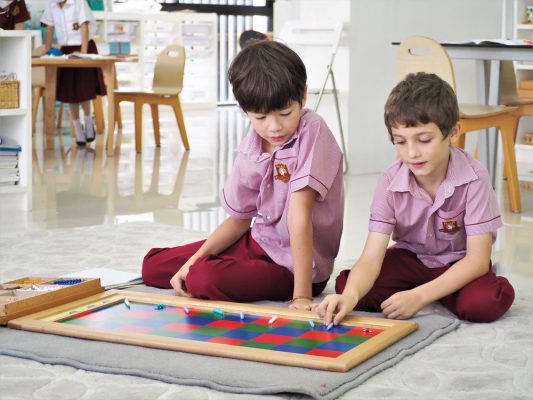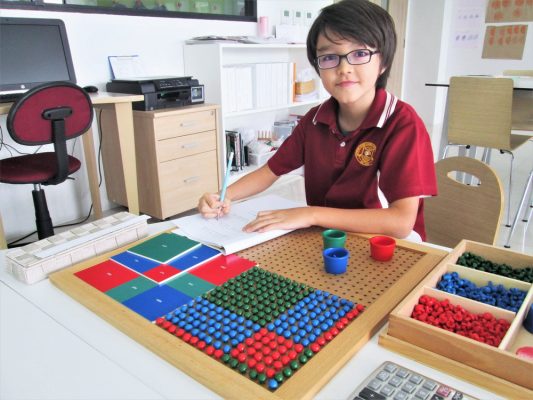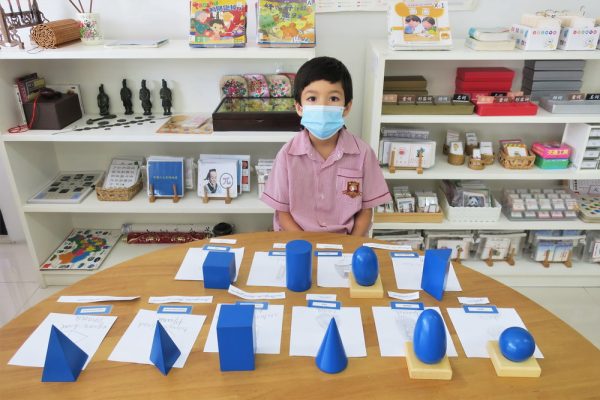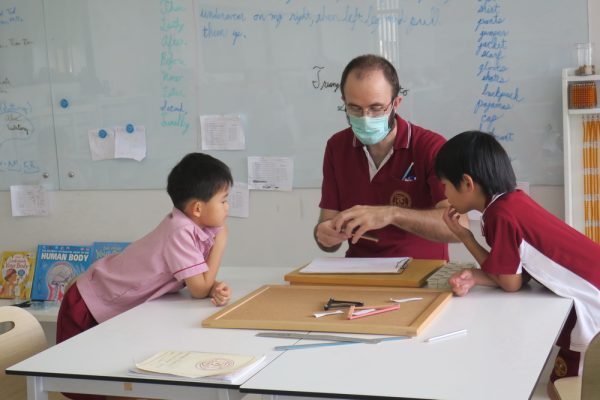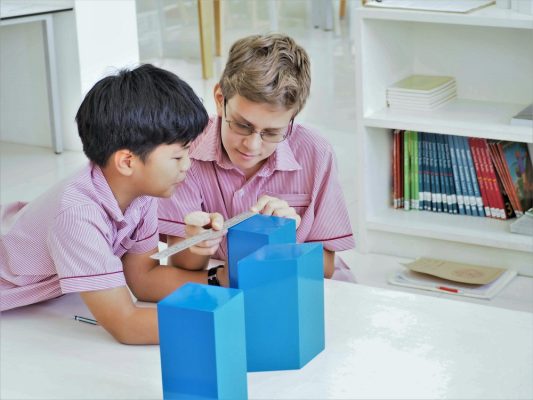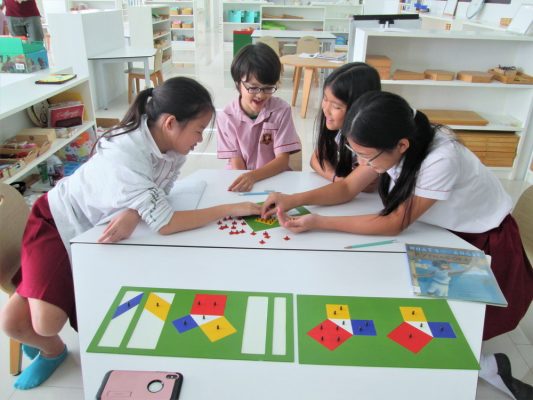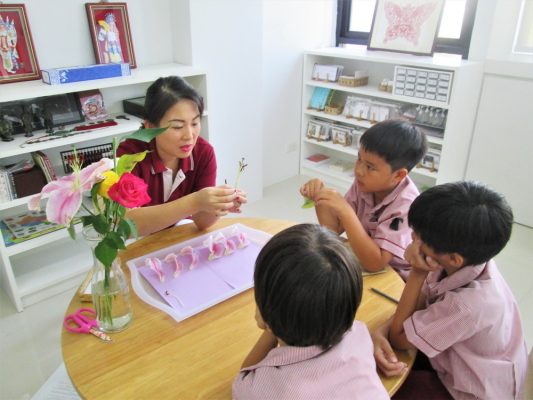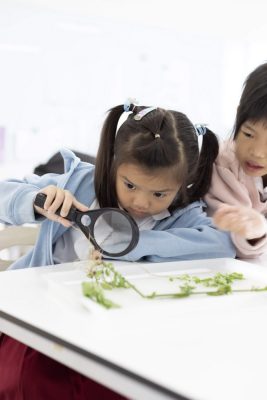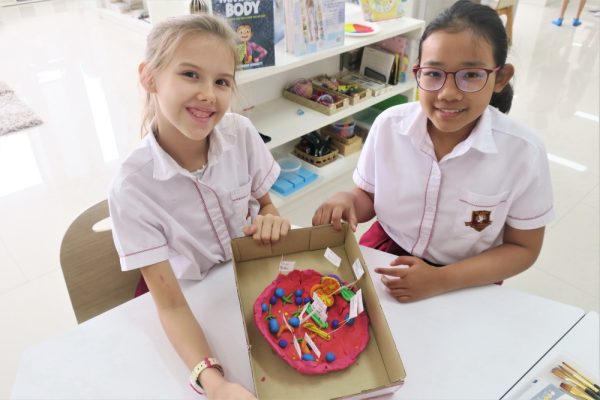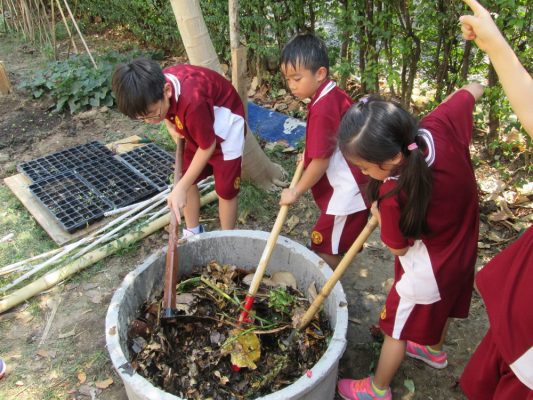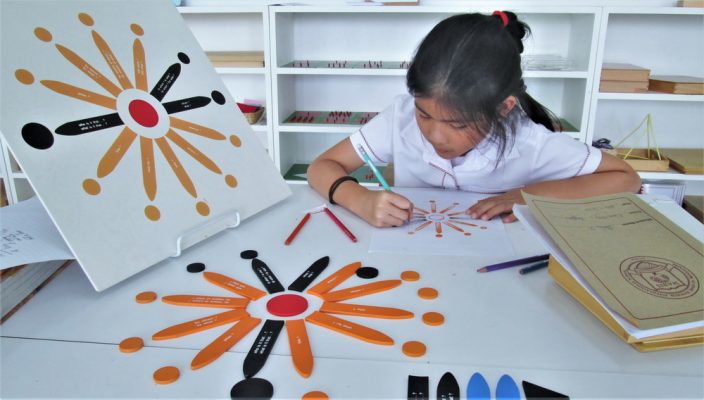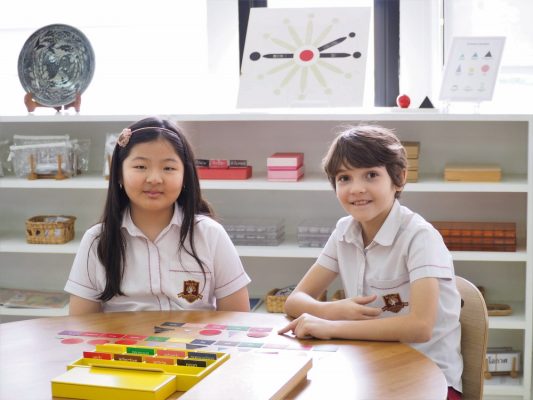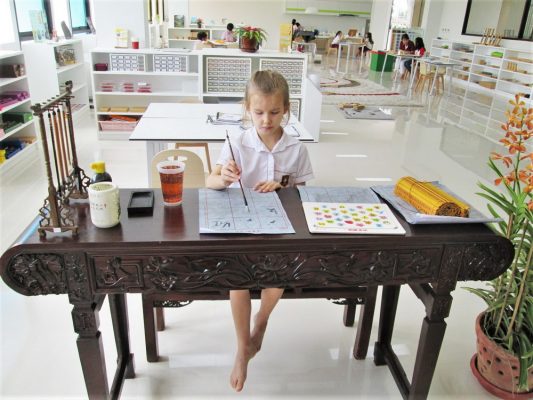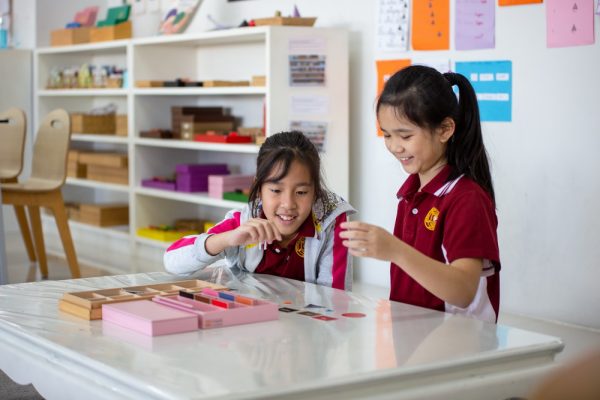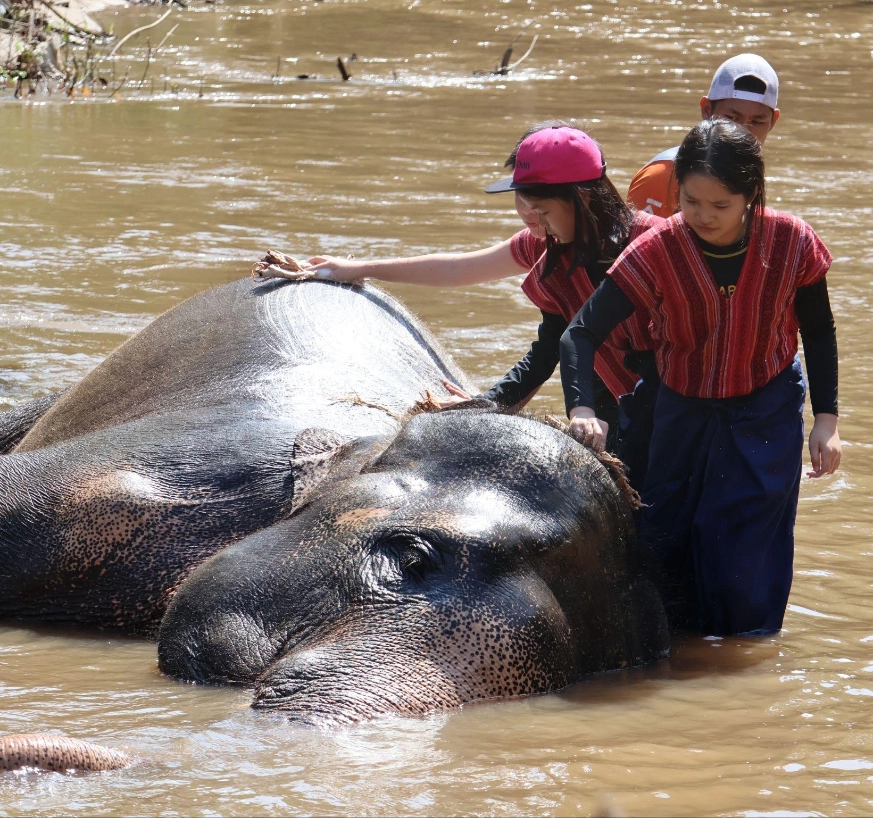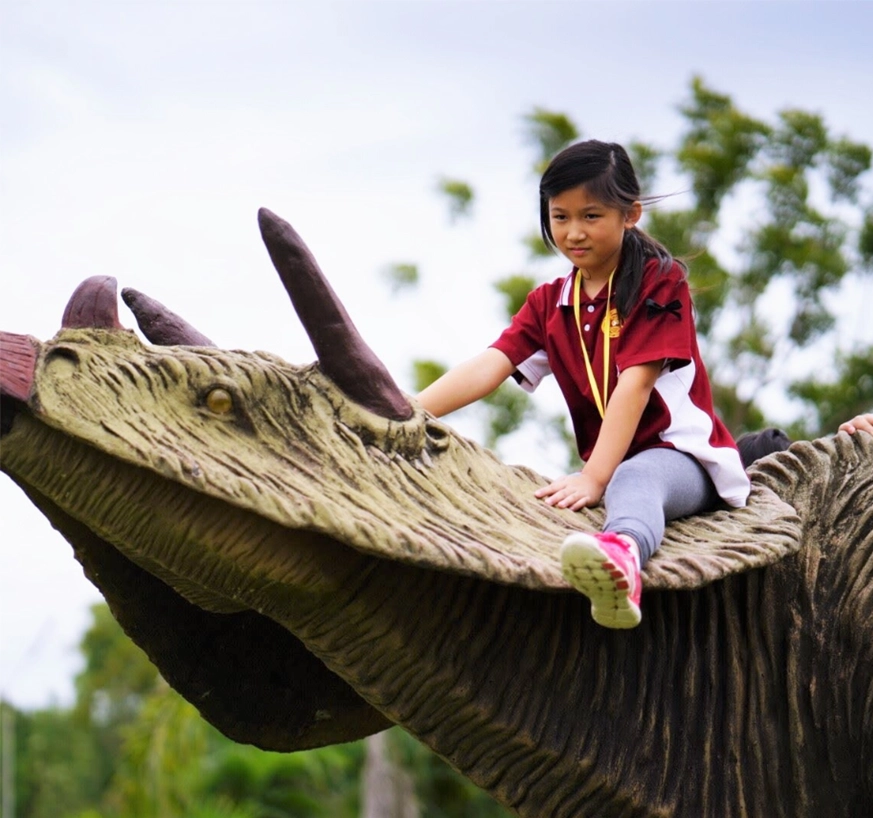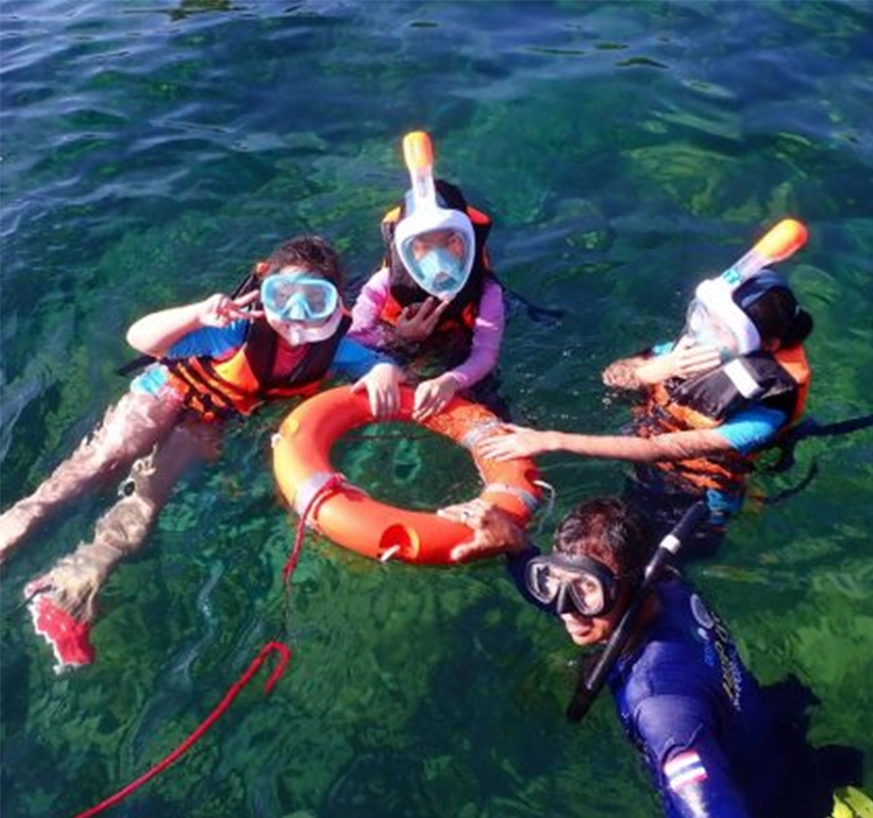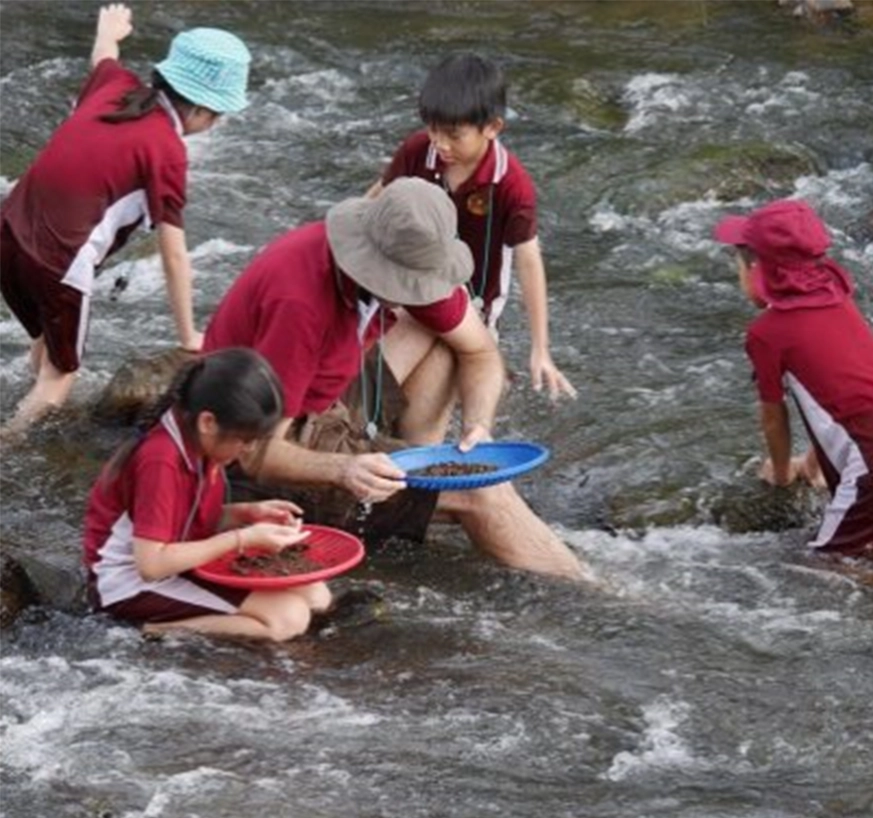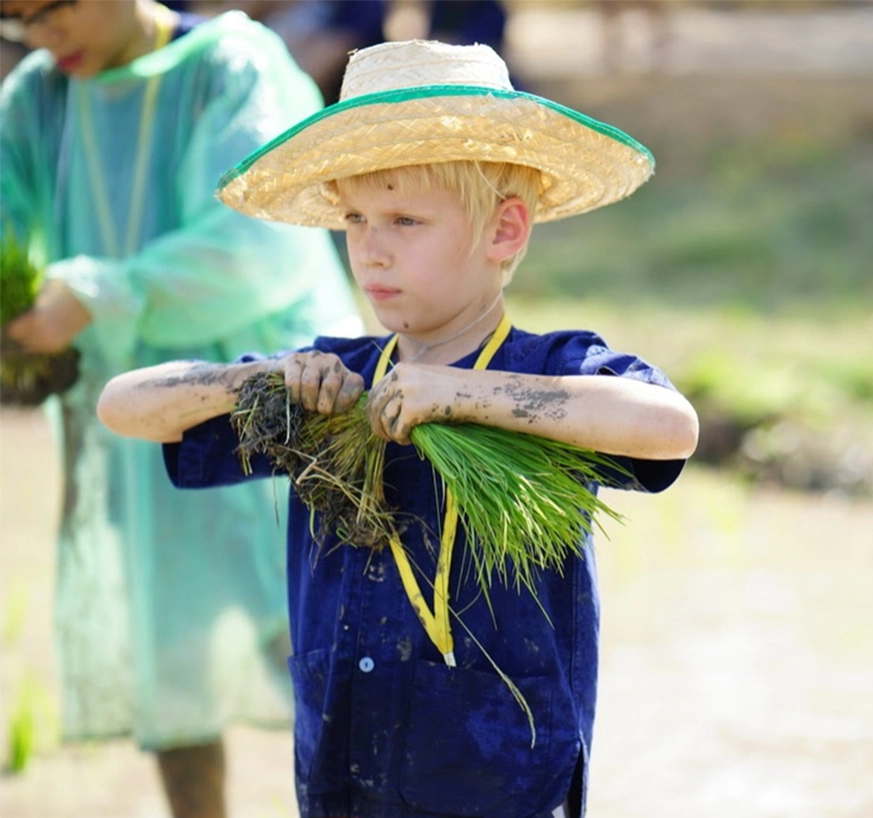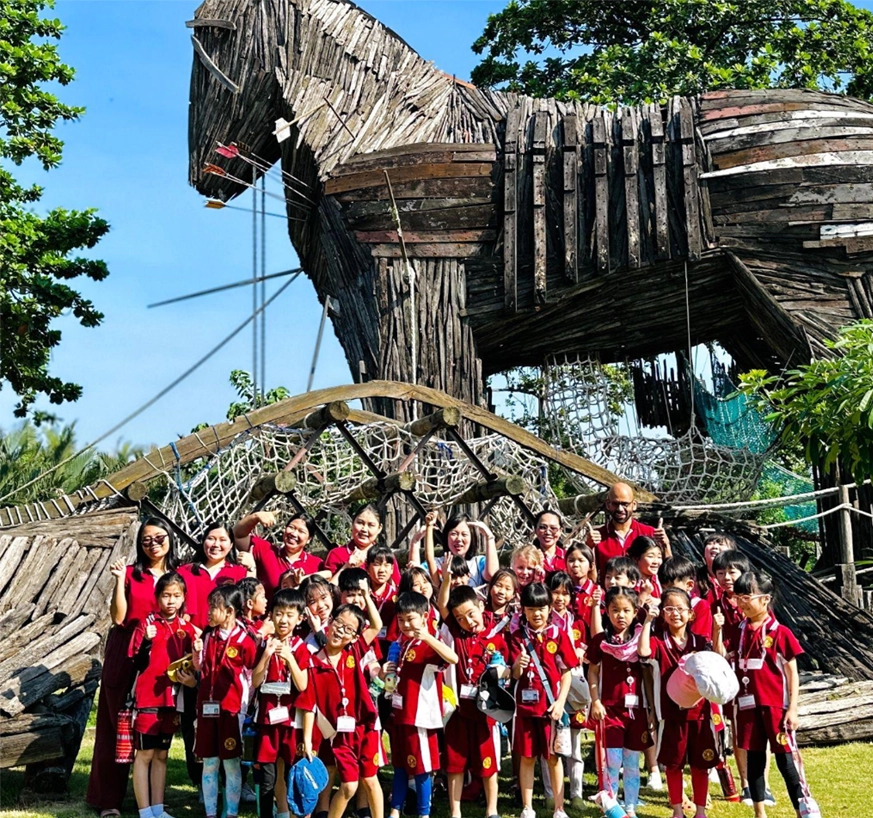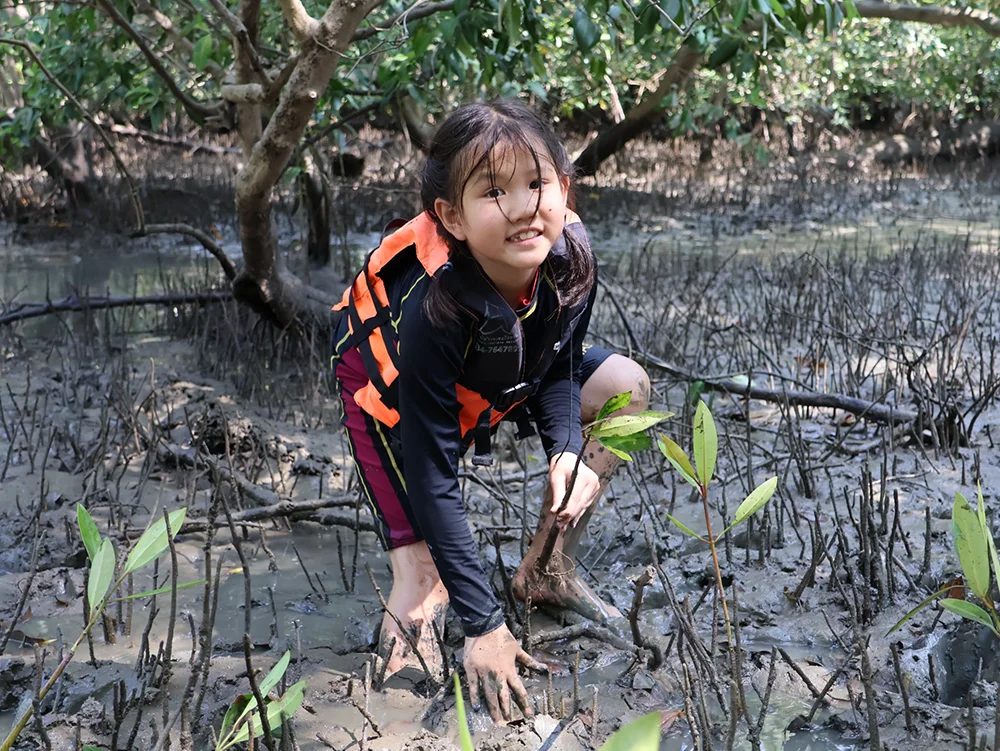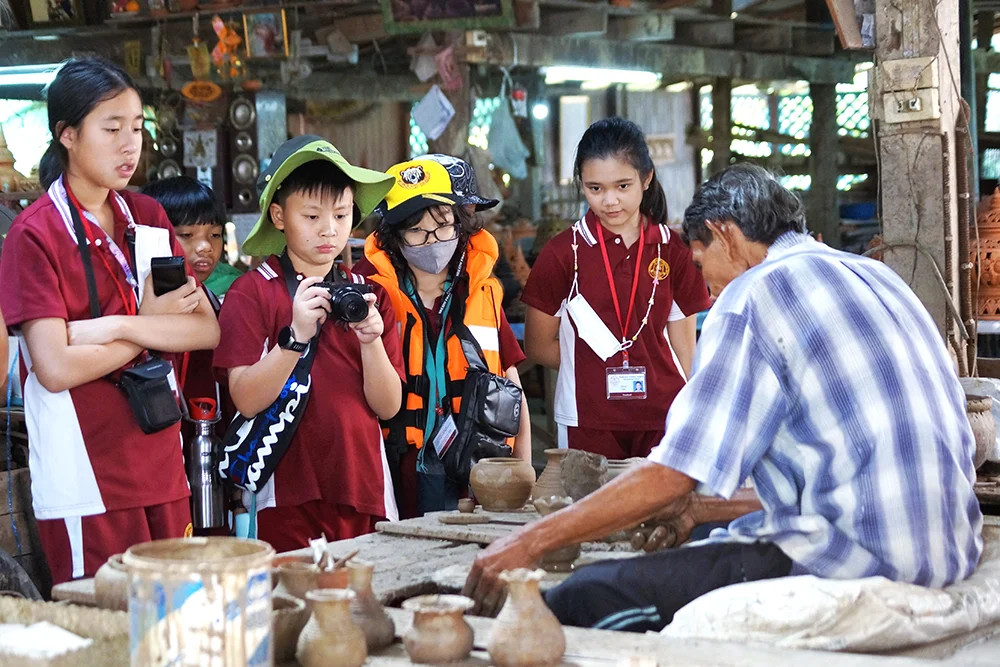Cosmic Education
The Montessori Elementary program consists of Lower Elementary for children ages 6 through 9 years(US Grades 1-3) and Upper Elementary for children between the ages of 9 and 12 years (US Grades 4-6).
The Elementary curriculum responds to the child’s developingpowers of imagination and creativity, and hisincreasing interest in the world around him. The curriculum which is centered around Cosmic Education offers the idea of the grandeur of the universe, the legacy of evolution, the diversity and richness of human civilizations, and the impression of the human ingenuity in the creation of tools of communication and mathematics.
These ideas are delivered through story telling in the Five Great Lessons. Theyoffer the child an understanding of the unfolding of life and development of culture. The Great Lessons are followed by Key Lessons which allow the child to delve into more intense study and research of specific interest areas.
The objective is to spark the child’s interest so that he may be inspiredto discover more through his own research and effort. This ensures that learning is meaningful for the child. Teachers also support the development of essential academic skills through a rigorous curriculum.

Curriculum Subject Areas
While the Great Stories offer an overall framework for the curriculum, each subject area is delivered independently and also in an interdisciplinary manner. The subject areas include: Languages (English, Chinese and Thai), Math, Geometry, History, Geography, Science, as well as Design, Media, Technology, Art, Drama, Music, and Physical Education.
History
The Elementary History curriculum presents a number of broad conceptual keys for the imaginative exploration of time, human progress and culture. These include The Story of the Coming of Life, the Timeline of Life, and the Story of the Coming of Humans with its related timelines.
Attention is drawn to the many and diverse ways in which human beings in different parts of the world, and at different times, have sought to meet their needs and achieve their aspirations. This provides a conceptual and organizing principle for the further study of human culture through history. Children are shown how to construct their own timelines, and how to conduct, write and present small research projects relating to their personal and family history.
Students explore the Ancient Civilizations of Mesopotamia, Egypt, Indus River Valley, Huang He, Greece, Rome and the Americas. They also study the Chinese and Thai civilizations extensively. Advanced students progress to study the Renaissance, the Age of Exploration and select topics in Modern World History.
Geography / Physical Science
The Elementary Geography curriculum is introduced with the story of The Beginning of the Universe which is designed to stimulate awe, wonder and an imaginative connection with the universe. This is followed with scientific experiments that demonstrate the characteristics of solids, liquids and gases and the laws that govern all matter.
Students are then introduced to the relationship between the Earth and the Sun, the concept of time zones, seasons, global wind systems, ocean currents, water cycles, erosion, vegetation zones and different cultures in different zones. Students study the formation of geographical features, the layers of the earth, plate tectonics, political geography along with human and economic geography.
Physical science involves the study of force and motion, waves, simple machines, electricity and magnetism and an introduction to chemistry and the elements.
Math
Elementary students continue to use concrete materials to develop their math skills. This process allows the child to fully grasp the relationships of numbers in multiple-dimensions including through geometric form. The child gradually progresses to an abstract understanding of the math concepts. When he achieves this he no longer needs to rely on the materials and works directly on paper.
Children enter the Montessori program working with large numbers in the millions! They are excited to work with attractive physical materials to help them understand the concept of place value, fractions, decimals, operations of numbers, ratios and proportions, powers of numbers, negative numbers. They progress to work with complex concepts involving binomials, trinomials, square root and cube root of large numbers, probability and statistics, non-decimal base systems and the exploration of algebra.
Geometry
The Elementary Geometry curriculum is framed within the story ‘How Geometry got its Name’, an account of the origins of geometry 5,000 years ago from Egypt. Geometry involves an extensive exploration of plane geometry, the triangles and the concepts of equivalence, similarity and congruence, the exploration of lines, quadrilaterals, angles, the use of a protractor and compass, and the measurement of angles.
More complex work involves an exploration of the measurement of area and volume, an introduction to Pythagorean and Euclidian geometry. This leads to the derivation and application of formulae for the calculation of area and volume, including the area of a circle, the volume of a cylinder and cone, the lateral and total areas of a cylinder and pyramid.
Life Science (Biology / Botany)
In the study of biology students learn about the kingdoms of life and classes of animals. They explore diverse animal types and behavior and the human body systems. They learn about ecology and the relationship between humans and the rest of nature.
The study of botany includes hands on experiments and work in the garden. Children learn about the parts of plants and their functions, the diversity of plant life, importance to the ecosystem and learn the plant classification system.
Languages (English, Chinese, Thai)
The Language curriculum is introduced with the Story of the Communication in Signs, which relays the origins of the written language to help the child gain an appreciation of the development and evolution of language.
Children develop skill and confidence in communicating through interactions in group activities, presentations, debates and discussions. Reading and comprehension skills are developed through exposure to quality and diverse literature. Students work on grammar, word study, sentence structure and style analysis. Written expression includes a variety of writing techniques including: creative, narrative, research, persuasive, poetry, comparative amongst others. Students are involved in creating original works of writing and also in performing.
While English will be the primary language used for the Montessori curriculum, Chinese and Thai lessons are an integral component of the trilingual program. Thai language lessons follow the guidelines of the Thai National curriculum. Chinese language lessons are developed for speakers of Chinese as a Second Language.
Music
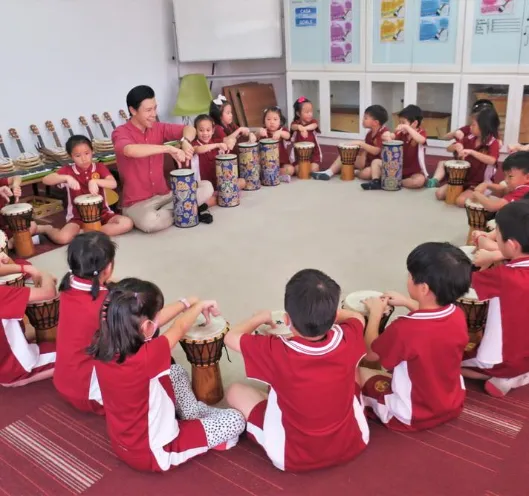
Our Music program is designed to inspire students to develop their own musical voices and ideas and to instill a love for music which will benefit all aspects of their personal growth. Music is delivered through a variety of fun educational games, songs and musical activities appropriate to each group. Students may also play in ensembles and perform to an audience throughout the school year.
Drama
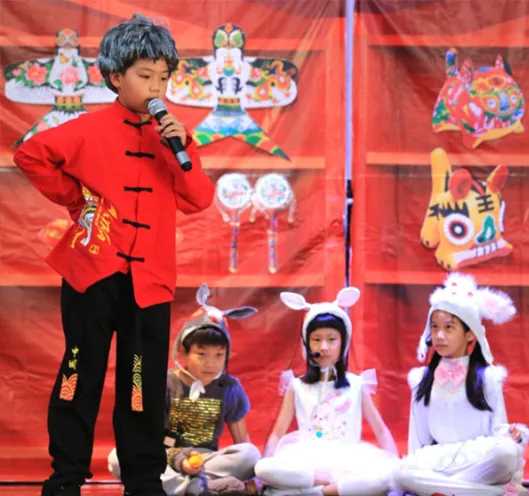
Our Drama program ignites a passion for storytelling and self-expression! Through engaging games and activities, students explore the wonders of theater, developing creativity, confidence, and public speaking skills in a collaborative and supportive environment. This culminates in several major productions each year, where students shine on stage, showcasing their teamwork and newfound talents before a live audience.
Art
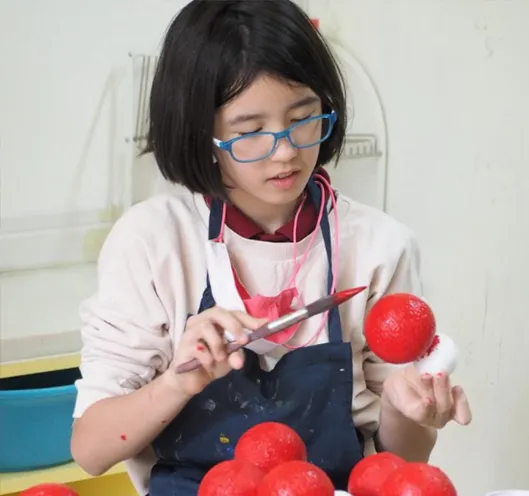
Our Art program fosters a love for creativity and self-expression. Children explore a wide range of art materials and techniques, developing fine motor skills and artistic vocabulary. Through independent exploration and teacher-guided lessons, students discover the joy of creating art and gain a deeper appreciation for the world around them.

Sports
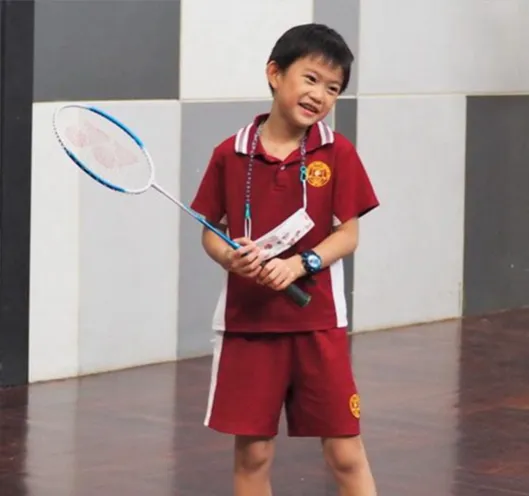
Our Sports program fosters a love for physical activity through a variety of engaging activities. Led by qualified instructors, students develop fitness, agility, and teamwork skills. They explore a range of sports like basketball, volleyball, soccer, and more, finding activities they enjoy. This program promotes healthy habits, coordination, and a sense of sportsmanship.

Design, Media & Technology(DMT)
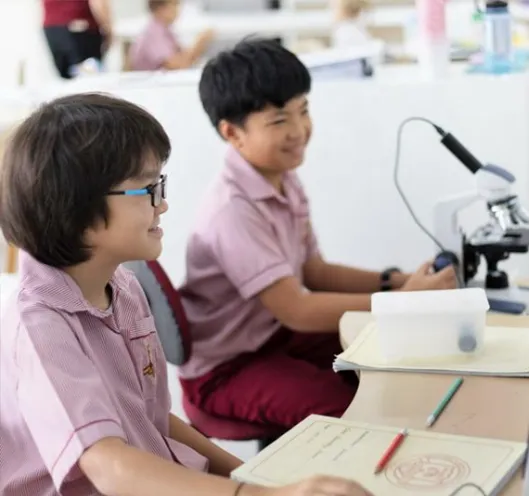
Our Design, Media & Technology (DMT) program equips elementary students with the digital skills they need to thrive. Through hands-on activities, they explore communication tools, productivity apps like animation and graphic design software, 2D/3D modeling and printing, basic programming and robotics. This fosters computational thinking and control of electronic devices.

Culinary Arts

Our Culinary Arts program ignites a love of learning through food exploration. Younger students build kitchen skills with hands-on activities. Older students delve deeper, planning menus, budgeting, and preparing meals for the school community. It fosters practical skills, healthy habits, cultural appreciation, teamwork, and accomplishment – a delicious journey for mind and body!

Gardening

Our hands-on Gardening program connects students to the source of their food! Children of all ages plant and nurture vegetables, herbs, fruits, and flowers. They harvest their bounty with excitement, learning to collect, clean, and enjoy their homegrown produce. Some even have the opportunity to sell their harvest, fostering a sense of entrepreneurship! This program cultivates a love of nature, healthy eating habits, and valuable life skills.
